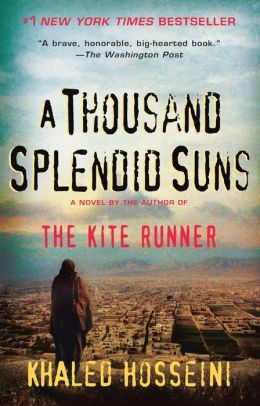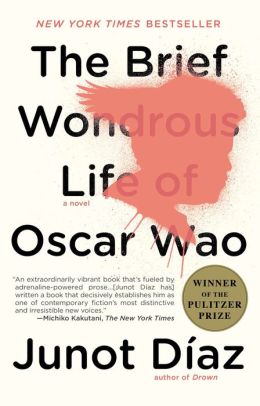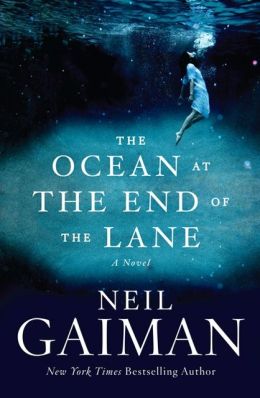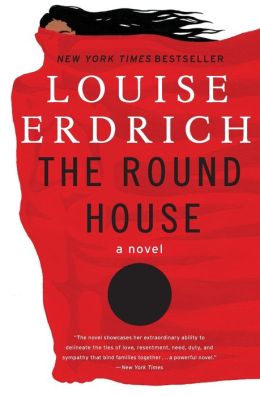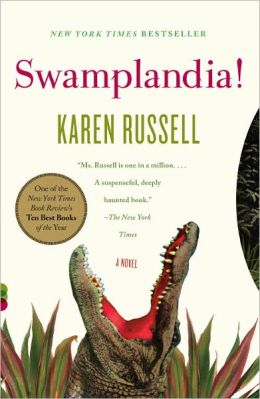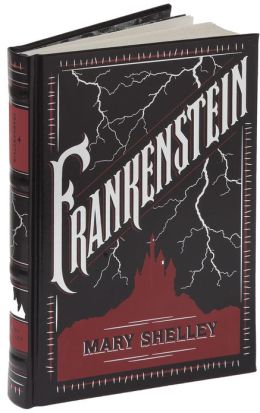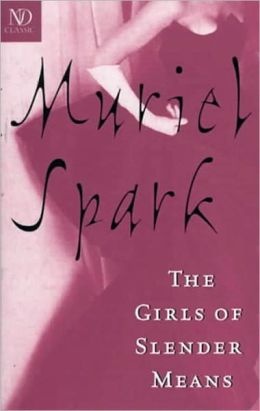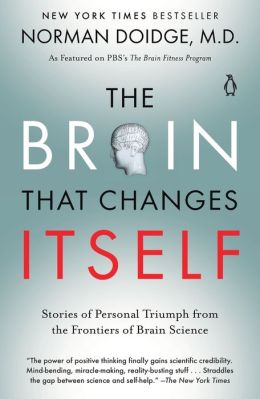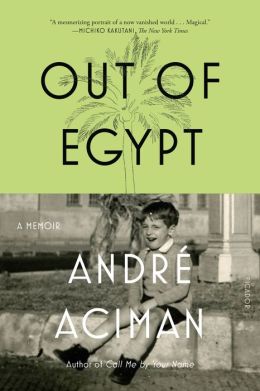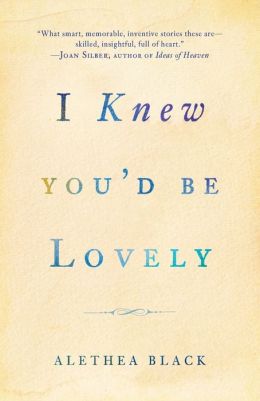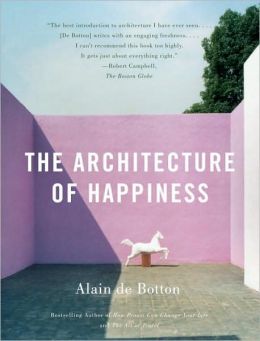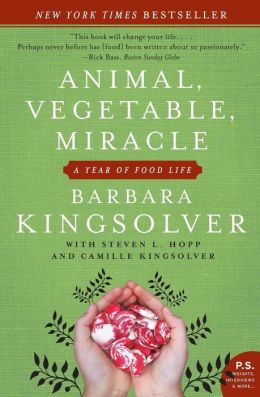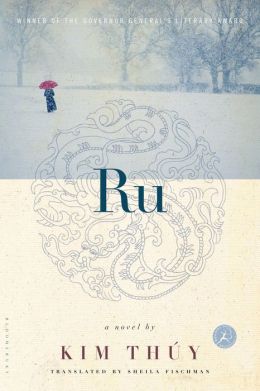October 12, 2014
BOOK-PICKING NIGHT is Oct. 27
We'll meet at Kerry's on Oct. 27 to pick books! See what people are thinking about pitching in the post below.
September 23, 2014
Long Lists - October 2014
Connie
The Language of Flowers,Vanessa Diffenbaugh
The Victorian language of flowers was used to convey romantic expressions: honeysuckle for devotion, asters for patience, and red roses for love. But for Victoria Jones, it’s been more useful in communicating mistrust and solitude. After a childhood spent in the foster-care system, she is unable to get close to anybody, and her only connection to the world is through flowers and their meanings. Now eighteen and emancipated from the system with nowhere to go, Victoria realizes she has a gift for helping others through the flowers she chooses for them. But an unexpected encounter with a mysterious stranger has her questioning what’s been missing in her life. And when she’s forced to confront a painful secret from her past, she must decide whether it’s worth risking everything for a second chance at happiness.
The Light Between Oceans, M.L. Stedman -- see this entry under Kerry's list below
Karen
The Graveyard Book, Neil Gaiman
In this Newbery Medal-winning novel, Bod is an unusual boy who inhabits an unusual place—he's the only living resident of a graveyard. Raised from infancy by the ghosts, werewolves, and other cemetery denizens, Bod has learned the antiquated customs of his guardians' time as well as their ghostly teachings—such as the ability to Fade so mere mortals cannot see him. Can a boy raised by ghosts face the wonders and terrors of the worlds of both the living and the dead? And then there are being such as ghouls that aren't really one thing or the other.
Outlander, Diana Gabaldon
Claire Randall is leading a double life. She has a husband in one century, and a lover in another.
In 1945, Claire Randall, a former combat nurse, is back from the war and reunited with her husband on a second honeymoon--when she innocently touches a boulder in one of the ancient stone circles that dot the British Isles. Suddenly she is a Sassenach--an "outlander"--in a Scotland torn by war and raiding border clans in the year of our Lord…1743.
Hurled back in time by forces she cannot understand, Claire's destiny in soon inextricably intertwined with Clan MacKenzie and the forbidden Castle Leoch. She is catapulted without warning into the intrigues of lairds and spies that may threaten her life ...and shatter her heart. For here, James Fraser, a gallant young Scots warrior, shows her a passion so fierce and a love so absolute that Claire becomes a woman torn between fidelity and desire...and between two vastly different men in two irreconcilable lives.
Her husband is two centuries away, she is related to her lover's mortal enemy, and her neighbors think she's a witch. In this unforgettable novel of time travel, Diana Gabaldon fuses wry, modern sensibility with the drama, passion, and violence of eighteenth century as she tells the story of one daring woman and the man who loves her.
Crooked Letter, Crooked Letter, Tom Franklin
In the 1970s, Larry Ott and Silas "32" Jones were boyhood pals in a small town in rural Mississippi. Their worlds were as different as night and day: Larry was the child of lower-middle-class white parents, and Silas, the son of a poor, black single mother. But then Larry took a girl to a drive-in movie and she was never seen or heard from again. He never confessed . . . and was never charged. More than twenty years have passed. Larry lives a solitary, shunned existence, never able to rise above the whispers of suspicion. Silas has become the town constable. And now another girl has disappeared, forcing two men who once called each other "friend" to confront a past they've buried for decades.
Kathy
Speak, Laurie Halse Anderson
Lord of the Flies, William Golding
Before The Hunger Games there was Lord of the Flies
Lord of the Flies remains as provocative today as when it was first published in 1954, igniting passionate debate with its startling, brutal portrait of human nature. Though critically acclaimed, it was largely ignored upon its initial publication. Yet soon it became a cult favorite among both students and literary critics who compared it to J.D. Salinger's The Catcher in the Rye in its influence on modern thought and literature. Labeled a parable, an allegory, a myth, a morality tale, a parody, a political treatise, even a vision of the apocalypse, Lord of the Flies has established itself as a true classic. The classic tale of a group of English school boys who are left stranded on an unpopulated island, and who must confront not only the defects of their society but the defects of their own natures.
Fences, August Wilson
The 1987 Winner of the Pulitzer Prize for Drama
From August Wilson, author of The Piano Lesson and the 1984-85 Broadway season's best play, Ma Rainey's Black Bottom, is another powerful, stunning dramatic work that has won him numerous critical acclaim including the 1987 Tony Award for Best Play and the Pulitzer Prize. The protagonist of Fences (part of Wilson’s ten-part “Pittsburgh Cycle” plays), Troy Maxson, is a strong man, a hard man. He has had to be to survive. Troy Maxson has gone through life in an America where to be proud and black is to face pressures that could crush a man, body and soul. But the1950s are yielding to the new spirit of liberation in the 1960s... a spirit that is changing the world Troy Maxson has learned to deal with the only way he can...a spirit that is making him a stranger, angry and afraid, in a world he never knew and to a wife and son he understands less and less…
Kerry
Ru, Kim Thuy
At ten years old, Kim Thúy fled Vietnam on a boat with her family, leaving behind a grand house and the many less tangible riches of their home country: the ponds of lotus blossoms, the songs of soup-vendors. The family arrived in Quebec, where they found clothes at the flea market, and mattresses with actual fleas. Kim learned French and English, and as she grew older, seized what opportunities an immigrant could; she put herself through school picking vegetables and sewing clothes, worked as a lawyer and interpreter, and later as a restaurateur. She was married and a mother when the urge to write struck her, and she found herself scribbling words at every opportunity - pulling out her notebook at stoplights and missing the change to green. The story emerging was one of a Vietnamese émigré on a boat to an unknown future: her own story fictionalized and crafted into a stunning novel.
The novel's title, Ru, has meaning in both Kim's native and adoptive languages: in Vietnamese, ru is a lullaby; in French, a stream. And it provides the perfect name for this slim yet potent novel. With prose that soothes and sings, Ru weaves through time, flows and transports: a river of sensuous memories gathering power. It's a classic immigrant story told in a breathtaking new way.
I Knew You'd be Lovely, Alethea Black
Alethea Black's deeply moving and wholly original debut features a coterie of memorable characters who have reached emotional crossroads in their lives. Brimming with humor, irony, and insights about the unpredictable nature of life, the unbearable beauty of fate, and the power that one moment, or one decision, can have to transform us, I Knew You'd Be Lovely delivers that rare thing—stories with both an edge and a heart.
The Light Between Oceans, M.L. Stedman
AFTER FOUR HARROWING YEARS ON THE WESTERN Front, Tom Sherbourne returns to Australia and takes a job as the lighthouse keeper on Janus Rock, nearly half a day’s journey from the coast. To this isolated island, where the supply boat comes once a season, Tom brings a young, bold, and loving wife, Isabel. Years later, after two miscarriages and one stillbirth, the grieving Isabel hears a baby’s cries on the wind. A boat has washed up onshore carrying a dead man and a living baby. Tom, who keeps meticulous records and whose moral principles have withstood a horrific war, wants to report the man and infant immediately. But Isabel insists the baby is a “gift from God,” and against Tom’s judgment, they claim her as their own and name her Lucy. When she is two, Tom and Isabel return to the mainland and are reminded that there are other people in the world. Their choice has devastated one of them.
Ruth
A Tree Grows in Brooklyn, Betty Smith
The American classic about a young girl's coming of age at the turn of the century. "A profoundly moving novel, and an honest and true one. It cuts right to the heart of life...If you miss A Tree Grows in Brooklyn you will deny yourself a rich experience...It is a poignant and deeply understanding story of childhood and family relationships. The Nolans lived in the Williamsburg slums of Brooklyn from 1902 until 1919...Their daughter Francie and their son Neely knew more than their fair share of the privations and sufferings that are the lot of a great city's poor. Primarily this is Francie's book. She is a superb feat of characterization, an imaginative, alert, resourceful child. And Francie's growing up and beginnings of wisdom are the substance of A Tree Grows in Brooklyn." —New York Times
"One of the books of the century." —New York Public Library
Voodoo Dreams, Jewell Parker Rhodes
New Orleans in the mid-nineteenth century is a city overflowing with white aristos, black creoles, and African Slaves, a city that pulses with crowds, with commerce and with the power and spectacle of the voodoo religion. At the center of the ritual is Marie Laveau, the notorious voodoiene, worshipped and feared by blacks and whites alike. Marie's followers claimed that she walked on water and sucked poison from a snake's jowls, that she raised the dead and murdered two men.
Voodoo Dreams is the spellbinding story of the woman behind the legend. Raised by her Grandmère in the Louisiana bayou, Marie ventures to New Orleans and begins a journey of self-discovery, hoping to find her lost Maman and understand the visions that haunt her dreams. Instead, she runs headlong into the brutality of slavery and oppression and into the arms of John, the voodoo doctor who promises to teach her what Grandmère will not. As she falls under his spell, John sweeps Marie into a world of voodoo ceremonies, of drama and manipulation, and of sometimes terrifying power. A mesmerizing combination of history and story telling, Voodoo Dreams was Jewell Parker Rhodes first novel and a B&N Discover Great New Writers selection.
Steph
Bring Up the Bodies, Hilary Mantel
Winner of the 2012 Man Booker Prize
Winner of the 2012 Costa Book Award for Novel
Named One of the 10 Best Books of the Year by:
The New York Times Book Review • The Washington Post • Publishers Weekly
Named a BestBook of the Year by The New Yorker • Time • USA Today • The Economist • NPR • The Atlantic • Los Angeles Times • The Wall Street Journal • Chicago Tribune • Entertainment Weekly • The Daily Beast • Financial Times • The Christian Science Monitor • San Francisco Chronicle • Seattle Times • Slate • Kansas City Star • New York Daily News • Minneapolis Star Tribune • Cleveland Plain Dealer • St. Louis Post-Dispatch • Milwaukee Journal Sentinel • The Daytona Beach News-Journal
The sequel to Hilary Mantel's 2009 Man Booker Prize winner and New York Times bestseller, Bring Up the Bodies delves into the heart of Tudor history with the downfall of Anne Boleyn. Though he battled for seven years to marry her, Henry is disenchanted with Anne Boleyn. She has failed to give him a son and her sharp intelligence and audacious will alienate his old friends and the noble families of England. When the discarded Katherine dies in exile from the court, Anne stands starkly exposed, the focus of gossip and malice. At a word from Henry, Thomas Cromwell is ready to bring her down. Over three terrifying weeks, Anne is ensnared in a web of conspiracy, while the demure Jane Seymour stands waiting her turn for the poisoned wedding ring. But Anne and her powerful family will not yield without a ferocious struggle. Hilary Mantel's Bring Up the Bodies follows the dramatic trial of the queen and her suitors for adultery and treason. To defeat the Boleyns, Cromwell must ally with his natural enemies, the papist aristocracy. What price will he pay for Anne's head?
Macbeth, Shakespeare
Macbeth is considered one of Shakespeare's darkest and most powerful works. Set in Scotland, the play dramatizes the corrosive psychological and political effects produced when evil is chosen as a way to fulfil the ambition for power…
Macbeth is Shakespeare's shortest tragedy, and tells the story of a brave Scottish general named Macbeth who receives a prophecy from a trio of witches that one day he will become King of Scotland. Consumed by ambition and spurred to action by his wife, Macbeth murders King Duncan and takes the throne for himself. He is then wracked with guilt and paranoia, and he soon becomes a tyrannical ruler as he is forced to commit more and more murders to protect himself from enmity and suspicion. The bloodbath and consequent civil war swiftly take Macbeth and Lady Macbeth into the realms of arrogance, madness, and death. -- Wikipedia
The Maid's Version, Daniel Woodrell
The American master's first novel since Winter's Bone (2006) tells of a deadly dance hall fire and its impact over several generations. Alma DeGeer Dunahew, the mother of three young boys, works as the maid for a prominent family in West Table, Missouri. Her husband is mostly absent, and, in 1929, her scandalous, beloved younger sister is one of the 42 killed in an explosion at the local dance hall. Who is to blame? Mobsters from St. Louis? The embittered local gypsies? The preacher who railed against the loose morals of the waltzing couples? Or could it have been a colossal accident? Alma thinks she knows the answer—and that its roots lie in a dangerous love affair. Her dogged pursuit of justice makes her an outcast and causes a long-standing rift with her own son. By telling her story to her grandson, Alma finally gains some solace—and peace for her sister. He is advised to "Tell it. Go on and tell it"—tell the story of his family's struggles, suspicions, secrets, and triumphs.
The Sound and the Fury, William Faulkner
From Wikipedia:
Giants in the Earth, Ole Rolvaag
This is the story of a group of Norwegian settlers who attempt to stake a claim to, and settle on, land in the Dakota Territory. I've read this and found it mesmerizing and haunting. I loved the detailed account of how the settlers traveled by wagon across endless fields of pristine grassland -- no roads -- and then built homes from the sod, broke ground and planted crops. The settlers face myriad challenges, from the external environment-related challenges, to the internal battles for sanity.
Stoner, John Williams
Stoner is the story of William Stoner who grows up on a farm at the end of the 1800's, goes to college to study agriculture so as to help his father farm more successfully, but then falls in love with literature and abandons the family farm. He becomes a professor and marries a woman of society. His life brings him a series of disappointments in his marriage, career, and fatherhood.
Stoner was published first in 1965. It has since gone out of publication twice, but has repeatedly been rediscovered and resurrected by word of mouth. It's currently experiencing a bit of a renaissance and is back in print and getting a lot of attention:
NYTimes books review: "Stoner is something rarer than a great novel -- it is a perfect novel, so well told and beautifully written, so deep moving, that it takes your breath away."
“Stoner” argues that we are measured ultimately by our capacity to face the truth of who we are in private moments, not by the burnishing of our public selves. It is, in other words, a searing condemnation of our current cultural moment — one that happens to have been written nearly 50 years ago. -- NYTimes Magazine
“The book begins boldly with a mention of Stoner’s death, and a nod to his profound averageness: ‘Few students remembered him with any sharpness after they had taken his courses.’ By the end, though, Williams has made Stoner’s disappointing life into such a deep and honest portrait, so unsoftened and unromanticized, that it’s quietly breathtaking.” —The Boston Globe
The Blind Assassin, Margaret Atwood
The novel opens with these simple, resonant words: "Ten days after the war ended, my sister drove a car off the bridge." They are spoken by Iris, whose terse account of her sister Laura's death in 1945 is followed by an inquest report proclaiming the death accidental. But just as the reader expects to settle into Laura's story, Atwood introduces a novel-within-a- novel. Entitled The Blind Assassin, it is a science fiction story told by two unnamed lovers who meet in dingy backstreet rooms. When we return to Iris, it is through a 1947 newspaper article announcing the discovery of a sailboat carrying the dead body of her husband, a distinguished industrialist.
Told in a style that magnificently captures the colloquialisms and clichés of the 1930s and 1940s, The Blind Assassin is a richly layered and uniquely rewarding experience. The novel has many threads and a series of events that follow one another at a breathtaking pace. As everything comes together, readers will discover that the story Atwood is telling is not only what it seems to be--but, in fact, much more. The Blind Assassin proves once again that Atwood is one of the most talented, daring, and exciting writers of our time. Like The Handmaid's Tale, it is destined to become a classic.
The Picture of Dorian Gray, Oscar Wilde
The Picture of Dorian Gray is the only published novel by Oscar Wilde. It tells of a young man named Dorian Gray, the subject of a painting by artist Basil Hallward. Basil is impressed by Dorian's beauty and becomes infatuated with him, believing his beauty is responsible for a new mode in his art. Talking in Basil's garden, Dorian meets Lord Henry Wotton, a friend of Basil's, and becomes enthralled by Lord Henry's world view. Espousing a new hedonism, Lord Henry suggests the only things worth pursuing in life are beauty and fulfilment of the senses. Realising that one day his beauty will fade, Dorian cries out, expressing his desire to sell his soul to ensure the portrait Basil has painted would age rather than himself. Dorian's wish is fulfilled, plunging him into debauched acts.
The portrait serves as a reminder of the effect each act has upon his soul, with each sin displayed as a disfigurement of his form, or through a sign of aging.
Some other possibilities:
Suzanne
We Are All Completely Beside Ourselves, Karen Jay Fowler
In We Are All Completely beside Ourselves, Karen Joy Fowler weaves her most accomplished work to date—a tale of loving but fallible people whose well-intentioned actions lead to heartbreaking consequences.
Half-Blood Blues, Esi Edugyan
Berlin, 1952. Falk is a jazz legend. Hot Time Swingers band members Sid Griffiths and Chip Jones, both African Americans from Baltimore, have appeared in a documentary about Falk. When they are invited to attend the film’s premier, Sid’s role in Falk’s fate will be questioned and the two old musicians set off on a surprising and strange journey.
From the smoky bars of pre-war Berlin to the salons of Paris, Sid leads the reader through a fascinating, little-known world as he describes the friendships, love affairs and treacheries that led to Falk’s incarceration in Sachsenhausen. Half-Blood Blues is a story about music and race, love and loyalty, and the sacrifices we ask of ourselves, and demand of others, in the name of art.
The Language of Flowers,Vanessa Diffenbaugh
The Victorian language of flowers was used to convey romantic expressions: honeysuckle for devotion, asters for patience, and red roses for love. But for Victoria Jones, it’s been more useful in communicating mistrust and solitude. After a childhood spent in the foster-care system, she is unable to get close to anybody, and her only connection to the world is through flowers and their meanings. Now eighteen and emancipated from the system with nowhere to go, Victoria realizes she has a gift for helping others through the flowers she chooses for them. But an unexpected encounter with a mysterious stranger has her questioning what’s been missing in her life. And when she’s forced to confront a painful secret from her past, she must decide whether it’s worth risking everything for a second chance at happiness.
The Light Between Oceans, M.L. Stedman -- see this entry under Kerry's list below
Karen
The Graveyard Book, Neil Gaiman
- 2009 Newbery Medal Winner
- 2009 Hugo Award Winner for Best Novel
- 2010 Carnegie Medal Winner
In this Newbery Medal-winning novel, Bod is an unusual boy who inhabits an unusual place—he's the only living resident of a graveyard. Raised from infancy by the ghosts, werewolves, and other cemetery denizens, Bod has learned the antiquated customs of his guardians' time as well as their ghostly teachings—such as the ability to Fade so mere mortals cannot see him. Can a boy raised by ghosts face the wonders and terrors of the worlds of both the living and the dead? And then there are being such as ghouls that aren't really one thing or the other.
Outlander, Diana Gabaldon
Claire Randall is leading a double life. She has a husband in one century, and a lover in another.
In 1945, Claire Randall, a former combat nurse, is back from the war and reunited with her husband on a second honeymoon--when she innocently touches a boulder in one of the ancient stone circles that dot the British Isles. Suddenly she is a Sassenach--an "outlander"--in a Scotland torn by war and raiding border clans in the year of our Lord…1743.
Hurled back in time by forces she cannot understand, Claire's destiny in soon inextricably intertwined with Clan MacKenzie and the forbidden Castle Leoch. She is catapulted without warning into the intrigues of lairds and spies that may threaten her life ...and shatter her heart. For here, James Fraser, a gallant young Scots warrior, shows her a passion so fierce and a love so absolute that Claire becomes a woman torn between fidelity and desire...and between two vastly different men in two irreconcilable lives.
Her husband is two centuries away, she is related to her lover's mortal enemy, and her neighbors think she's a witch. In this unforgettable novel of time travel, Diana Gabaldon fuses wry, modern sensibility with the drama, passion, and violence of eighteenth century as she tells the story of one daring woman and the man who loves her.
Crooked Letter, Crooked Letter, Tom Franklin
- Winner of the 2011 CWA Gold Dagger Award
- Edgar Award nominee
In the 1970s, Larry Ott and Silas "32" Jones were boyhood pals in a small town in rural Mississippi. Their worlds were as different as night and day: Larry was the child of lower-middle-class white parents, and Silas, the son of a poor, black single mother. But then Larry took a girl to a drive-in movie and she was never seen or heard from again. He never confessed . . . and was never charged. More than twenty years have passed. Larry lives a solitary, shunned existence, never able to rise above the whispers of suspicion. Silas has become the town constable. And now another girl has disappeared, forcing two men who once called each other "friend" to confront a past they've buried for decades.
Kathy
Speak, Laurie Halse Anderson
- 1999 National Book Award Finalist for Young People's Literature
- School Library Journal Best Books of the Year
- Booklist Editors' Choice
Lord of the Flies, William Golding
Before The Hunger Games there was Lord of the Flies
Lord of the Flies remains as provocative today as when it was first published in 1954, igniting passionate debate with its startling, brutal portrait of human nature. Though critically acclaimed, it was largely ignored upon its initial publication. Yet soon it became a cult favorite among both students and literary critics who compared it to J.D. Salinger's The Catcher in the Rye in its influence on modern thought and literature. Labeled a parable, an allegory, a myth, a morality tale, a parody, a political treatise, even a vision of the apocalypse, Lord of the Flies has established itself as a true classic. The classic tale of a group of English school boys who are left stranded on an unpopulated island, and who must confront not only the defects of their society but the defects of their own natures.
Fences, August Wilson
The 1987 Winner of the Pulitzer Prize for Drama
From August Wilson, author of The Piano Lesson and the 1984-85 Broadway season's best play, Ma Rainey's Black Bottom, is another powerful, stunning dramatic work that has won him numerous critical acclaim including the 1987 Tony Award for Best Play and the Pulitzer Prize. The protagonist of Fences (part of Wilson’s ten-part “Pittsburgh Cycle” plays), Troy Maxson, is a strong man, a hard man. He has had to be to survive. Troy Maxson has gone through life in an America where to be proud and black is to face pressures that could crush a man, body and soul. But the1950s are yielding to the new spirit of liberation in the 1960s... a spirit that is changing the world Troy Maxson has learned to deal with the only way he can...a spirit that is making him a stranger, angry and afraid, in a world he never knew and to a wife and son he understands less and less…
Kerry
Ru, Kim Thuy
At ten years old, Kim Thúy fled Vietnam on a boat with her family, leaving behind a grand house and the many less tangible riches of their home country: the ponds of lotus blossoms, the songs of soup-vendors. The family arrived in Quebec, where they found clothes at the flea market, and mattresses with actual fleas. Kim learned French and English, and as she grew older, seized what opportunities an immigrant could; she put herself through school picking vegetables and sewing clothes, worked as a lawyer and interpreter, and later as a restaurateur. She was married and a mother when the urge to write struck her, and she found herself scribbling words at every opportunity - pulling out her notebook at stoplights and missing the change to green. The story emerging was one of a Vietnamese émigré on a boat to an unknown future: her own story fictionalized and crafted into a stunning novel.
The novel's title, Ru, has meaning in both Kim's native and adoptive languages: in Vietnamese, ru is a lullaby; in French, a stream. And it provides the perfect name for this slim yet potent novel. With prose that soothes and sings, Ru weaves through time, flows and transports: a river of sensuous memories gathering power. It's a classic immigrant story told in a breathtaking new way.
I Knew You'd be Lovely, Alethea Black
Alethea Black's deeply moving and wholly original debut features a coterie of memorable characters who have reached emotional crossroads in their lives. Brimming with humor, irony, and insights about the unpredictable nature of life, the unbearable beauty of fate, and the power that one moment, or one decision, can have to transform us, I Knew You'd Be Lovely delivers that rare thing—stories with both an edge and a heart.
The Light Between Oceans, M.L. Stedman
AFTER FOUR HARROWING YEARS ON THE WESTERN Front, Tom Sherbourne returns to Australia and takes a job as the lighthouse keeper on Janus Rock, nearly half a day’s journey from the coast. To this isolated island, where the supply boat comes once a season, Tom brings a young, bold, and loving wife, Isabel. Years later, after two miscarriages and one stillbirth, the grieving Isabel hears a baby’s cries on the wind. A boat has washed up onshore carrying a dead man and a living baby. Tom, who keeps meticulous records and whose moral principles have withstood a horrific war, wants to report the man and infant immediately. But Isabel insists the baby is a “gift from God,” and against Tom’s judgment, they claim her as their own and name her Lucy. When she is two, Tom and Isabel return to the mainland and are reminded that there are other people in the world. Their choice has devastated one of them.
Ruth
A Tree Grows in Brooklyn, Betty Smith
The American classic about a young girl's coming of age at the turn of the century. "A profoundly moving novel, and an honest and true one. It cuts right to the heart of life...If you miss A Tree Grows in Brooklyn you will deny yourself a rich experience...It is a poignant and deeply understanding story of childhood and family relationships. The Nolans lived in the Williamsburg slums of Brooklyn from 1902 until 1919...Their daughter Francie and their son Neely knew more than their fair share of the privations and sufferings that are the lot of a great city's poor. Primarily this is Francie's book. She is a superb feat of characterization, an imaginative, alert, resourceful child. And Francie's growing up and beginnings of wisdom are the substance of A Tree Grows in Brooklyn." —New York Times
"One of the books of the century." —New York Public Library
Voodoo Dreams, Jewell Parker Rhodes
New Orleans in the mid-nineteenth century is a city overflowing with white aristos, black creoles, and African Slaves, a city that pulses with crowds, with commerce and with the power and spectacle of the voodoo religion. At the center of the ritual is Marie Laveau, the notorious voodoiene, worshipped and feared by blacks and whites alike. Marie's followers claimed that she walked on water and sucked poison from a snake's jowls, that she raised the dead and murdered two men.
Voodoo Dreams is the spellbinding story of the woman behind the legend. Raised by her Grandmère in the Louisiana bayou, Marie ventures to New Orleans and begins a journey of self-discovery, hoping to find her lost Maman and understand the visions that haunt her dreams. Instead, she runs headlong into the brutality of slavery and oppression and into the arms of John, the voodoo doctor who promises to teach her what Grandmère will not. As she falls under his spell, John sweeps Marie into a world of voodoo ceremonies, of drama and manipulation, and of sometimes terrifying power. A mesmerizing combination of history and story telling, Voodoo Dreams was Jewell Parker Rhodes first novel and a B&N Discover Great New Writers selection.
Steph
Bring Up the Bodies, Hilary Mantel
Winner of the 2012 Man Booker Prize
Winner of the 2012 Costa Book Award for Novel
Named One of the 10 Best Books of the Year by:
The New York Times Book Review • The Washington Post • Publishers Weekly
Named a BestBook of the Year by The New Yorker • Time • USA Today • The Economist • NPR • The Atlantic • Los Angeles Times • The Wall Street Journal • Chicago Tribune • Entertainment Weekly • The Daily Beast • Financial Times • The Christian Science Monitor • San Francisco Chronicle • Seattle Times • Slate • Kansas City Star • New York Daily News • Minneapolis Star Tribune • Cleveland Plain Dealer • St. Louis Post-Dispatch • Milwaukee Journal Sentinel • The Daytona Beach News-Journal
The sequel to Hilary Mantel's 2009 Man Booker Prize winner and New York Times bestseller, Bring Up the Bodies delves into the heart of Tudor history with the downfall of Anne Boleyn. Though he battled for seven years to marry her, Henry is disenchanted with Anne Boleyn. She has failed to give him a son and her sharp intelligence and audacious will alienate his old friends and the noble families of England. When the discarded Katherine dies in exile from the court, Anne stands starkly exposed, the focus of gossip and malice. At a word from Henry, Thomas Cromwell is ready to bring her down. Over three terrifying weeks, Anne is ensnared in a web of conspiracy, while the demure Jane Seymour stands waiting her turn for the poisoned wedding ring. But Anne and her powerful family will not yield without a ferocious struggle. Hilary Mantel's Bring Up the Bodies follows the dramatic trial of the queen and her suitors for adultery and treason. To defeat the Boleyns, Cromwell must ally with his natural enemies, the papist aristocracy. What price will he pay for Anne's head?
Macbeth, Shakespeare
Macbeth is considered one of Shakespeare's darkest and most powerful works. Set in Scotland, the play dramatizes the corrosive psychological and political effects produced when evil is chosen as a way to fulfil the ambition for power…
Macbeth is Shakespeare's shortest tragedy, and tells the story of a brave Scottish general named Macbeth who receives a prophecy from a trio of witches that one day he will become King of Scotland. Consumed by ambition and spurred to action by his wife, Macbeth murders King Duncan and takes the throne for himself. He is then wracked with guilt and paranoia, and he soon becomes a tyrannical ruler as he is forced to commit more and more murders to protect himself from enmity and suspicion. The bloodbath and consequent civil war swiftly take Macbeth and Lady Macbeth into the realms of arrogance, madness, and death. -- Wikipedia
The Maid's Version, Daniel Woodrell
The American master's first novel since Winter's Bone (2006) tells of a deadly dance hall fire and its impact over several generations. Alma DeGeer Dunahew, the mother of three young boys, works as the maid for a prominent family in West Table, Missouri. Her husband is mostly absent, and, in 1929, her scandalous, beloved younger sister is one of the 42 killed in an explosion at the local dance hall. Who is to blame? Mobsters from St. Louis? The embittered local gypsies? The preacher who railed against the loose morals of the waltzing couples? Or could it have been a colossal accident? Alma thinks she knows the answer—and that its roots lie in a dangerous love affair. Her dogged pursuit of justice makes her an outcast and causes a long-standing rift with her own son. By telling her story to her grandson, Alma finally gains some solace—and peace for her sister. He is advised to "Tell it. Go on and tell it"—tell the story of his family's struggles, suspicions, secrets, and triumphs.
The Sound and the Fury, William Faulkner
From Wikipedia:
The Sound and the Fury is set in Jefferson, Mississippi. The novel centers on the Compson family, former Southern aristocrats who are struggling to deal with the dissolution of their family and its reputation. Over the course of the 30 years or so related in the novel, the family falls into financial ruin, loses its religious faith and the respect of the town of Jefferson, and many of them die tragically. The novel is separated into four distinct sections. The first, April 7, 1928, is written from the perspective of Benjamin "Benjy" Compson, a cognitively disabled 33-year-old man. Benjy's section is characterized by a highly disjointed narrative style with frequent chronological leaps. The second section, June 2, 1910, focuses on Quentin Compson, Benjy's older brother, and the events leading up to his suicide. In the third section, April 6, 1928, Faulkner writes from the point of view of Jason, Quentin's cynical younger brother. In the fourth and final section, set a day after the first, on April 8, 1928, Faulkner introduces a third person omniscient point of view. The last section primarily focuses on Dilsey, one of the Compson's black servants. Jason is also a focus in the section, but Faulkner presents glimpses of the thoughts and deeds of everyone in the family.
Giants in the Earth, Ole Rolvaag
This is the story of a group of Norwegian settlers who attempt to stake a claim to, and settle on, land in the Dakota Territory. I've read this and found it mesmerizing and haunting. I loved the detailed account of how the settlers traveled by wagon across endless fields of pristine grassland -- no roads -- and then built homes from the sod, broke ground and planted crops. The settlers face myriad challenges, from the external environment-related challenges, to the internal battles for sanity.
Stoner, John Williams
Stoner is the story of William Stoner who grows up on a farm at the end of the 1800's, goes to college to study agriculture so as to help his father farm more successfully, but then falls in love with literature and abandons the family farm. He becomes a professor and marries a woman of society. His life brings him a series of disappointments in his marriage, career, and fatherhood.
Stoner was published first in 1965. It has since gone out of publication twice, but has repeatedly been rediscovered and resurrected by word of mouth. It's currently experiencing a bit of a renaissance and is back in print and getting a lot of attention:
NYTimes books review: "Stoner is something rarer than a great novel -- it is a perfect novel, so well told and beautifully written, so deep moving, that it takes your breath away."
- The Guardian (12/13/2013): Stoner: The Must-Read Novel of 2013
- The New Yorker (1/20/2013): The Greatest American Novel You've Never Heard Of
- NYTimes Magazine (5/9/2014): "You Should Seriously Read Stoner Right Now"
“Stoner” argues that we are measured ultimately by our capacity to face the truth of who we are in private moments, not by the burnishing of our public selves. It is, in other words, a searing condemnation of our current cultural moment — one that happens to have been written nearly 50 years ago. -- NYTimes Magazine
“The book begins boldly with a mention of Stoner’s death, and a nod to his profound averageness: ‘Few students remembered him with any sharpness after they had taken his courses.’ By the end, though, Williams has made Stoner’s disappointing life into such a deep and honest portrait, so unsoftened and unromanticized, that it’s quietly breathtaking.” —The Boston Globe
The Blind Assassin, Margaret Atwood
- Winner of the 2000 Booker Prize
The novel opens with these simple, resonant words: "Ten days after the war ended, my sister drove a car off the bridge." They are spoken by Iris, whose terse account of her sister Laura's death in 1945 is followed by an inquest report proclaiming the death accidental. But just as the reader expects to settle into Laura's story, Atwood introduces a novel-within-a- novel. Entitled The Blind Assassin, it is a science fiction story told by two unnamed lovers who meet in dingy backstreet rooms. When we return to Iris, it is through a 1947 newspaper article announcing the discovery of a sailboat carrying the dead body of her husband, a distinguished industrialist.
Told in a style that magnificently captures the colloquialisms and clichés of the 1930s and 1940s, The Blind Assassin is a richly layered and uniquely rewarding experience. The novel has many threads and a series of events that follow one another at a breathtaking pace. As everything comes together, readers will discover that the story Atwood is telling is not only what it seems to be--but, in fact, much more. The Blind Assassin proves once again that Atwood is one of the most talented, daring, and exciting writers of our time. Like The Handmaid's Tale, it is destined to become a classic.
The Picture of Dorian Gray, Oscar Wilde
The Picture of Dorian Gray is the only published novel by Oscar Wilde. It tells of a young man named Dorian Gray, the subject of a painting by artist Basil Hallward. Basil is impressed by Dorian's beauty and becomes infatuated with him, believing his beauty is responsible for a new mode in his art. Talking in Basil's garden, Dorian meets Lord Henry Wotton, a friend of Basil's, and becomes enthralled by Lord Henry's world view. Espousing a new hedonism, Lord Henry suggests the only things worth pursuing in life are beauty and fulfilment of the senses. Realising that one day his beauty will fade, Dorian cries out, expressing his desire to sell his soul to ensure the portrait Basil has painted would age rather than himself. Dorian's wish is fulfilled, plunging him into debauched acts.
The portrait serves as a reminder of the effect each act has upon his soul, with each sin displayed as a disfigurement of his form, or through a sign of aging.
Some other possibilities:
- The Telling Room, Michael Paterniti
- The Razor's Edge, W. Somerset Maugham
Suzanne
We Are All Completely Beside Ourselves, Karen Jay Fowler
- Winner of the 2014 PEN/Faulkner Award
- Shortlisted for the 2014 Man Booker Prize
- One of the New York Times Book Review's 100 Notable Books of 2013
- Named by The Christian Science Monitor as one of the top 15 works of fiction
In We Are All Completely beside Ourselves, Karen Joy Fowler weaves her most accomplished work to date—a tale of loving but fallible people whose well-intentioned actions lead to heartbreaking consequences.
Half-Blood Blues, Esi Edugyan
- Winner of the Scotiabank Giller Prize
- Man Booker Prize Finalist 2011
- An Oprah Magazine Best Book of the Year
- Shortlisted for the Governor General’s Literary Award for Fiction and for the 2011 Rogers Writers' Trust Fiction Prize
Berlin, 1952. Falk is a jazz legend. Hot Time Swingers band members Sid Griffiths and Chip Jones, both African Americans from Baltimore, have appeared in a documentary about Falk. When they are invited to attend the film’s premier, Sid’s role in Falk’s fate will be questioned and the two old musicians set off on a surprising and strange journey.
From the smoky bars of pre-war Berlin to the salons of Paris, Sid leads the reader through a fascinating, little-known world as he describes the friendships, love affairs and treacheries that led to Falk’s incarceration in Sachsenhausen. Half-Blood Blues is a story about music and race, love and loyalty, and the sacrifices we ask of ourselves, and demand of others, in the name of art.
September 8, 2014
Frankenstein, Mary Shelley - September 22, 2014
We'll meet on September 22 at Steph's to discuss Frankenstein by Mary Shelley.
- Penguin's Teachers Guide for Frankenstein
- Classic Lit Discussion Questions
- Broadened Horizons (a book club's blog) discussion questions
- Carol J. Adams, writing about vegetarianism and feminism in Frankenstein (as a chapter of a book on feminism)
- "The Monster Ate Vegetables," by Stefanie Anne Goldberg, in Lapham's Quarterly
- Story about a copy of the book, inscribed by the author to Lord Byron, with photo
August 11, 2014
The Ocean at the End of the Lane, Neil Gaiman - August 25, 2014
We'll meet at Julie's on August 25, 2014, to discuss The Ocean at the End of the Lane, by Neil Gaiman.
Supplemental materials:
Supplemental materials:
- NYT review
- NPR review
- Guardian review
- Neil Gaiman's website
- Publisher's site (with link to a reading guide)
- Paper Plate's online book club discussion (questions are posed in the post, then people discuss via the comments)
- LATimes review
- Salon article
- Meaning of the name "Ursula" (Wikipedia): Ursula is a diminutive of the Latin ursa (she-bear)
- A post on Neil Gaiman's Tumblr where he quotes a blogger who talks about female power in this novel
July 18, 2014
Swamplandia, Karen Russell - July 28
Supplemental materials:
- NYTimes review
- NPR review
- New Yorker interview with Karen Russell
- LitLovers discussion questions
- PBS NewsHour interview with Karen Russell
- Video of Karen Russell speaking at the 2011 New York State Writer's Institute
June 23, 2014
May 19, 2014
April 28, 2014
March 24, 2014
February 24, 2014
January 6, 2014
Beautiful Ruins, Jess Walter - January 27, 2014
We'll meet January 27 to discuss Beautiful Ruins by Jess Walter. Location TBD.
Supplemental materials:
Supplemental materials:
- Harper Collins' Reading Group Guide with discussion questions
- LitLovers discussion questions
- NY Times review:
The book takes its title from Louis Menand’s New Yorker description of Richard Burton at 54. It takes its essence from Milan Kundera, in a passage about the elusiveness of the present moment. Yet not for nothing is “Cleopatra” the vortex of the novel: the great Hollywood debacle, the love story as train wreck, the project so crazy it made other, crazier projects look sensible by comparison. And yet it was a romance. Mr. Walter has built his book around “Cleopatra” as a monument to crazy love.
- NPR review
December 1, 2013
Flight Behavior, Barbara Kingsolver - January 6, 2014
We'll meet at Julie's house on Jan. 6 to discuss Flight Behavior by Barbara Kingsolver.
Supplemental materials:
Supplemental materials:
- New York Times review
- LitLovers entry (includes publisher's discussion questions)
- Kingsolver's site
- Guardian interview
- PBS article: Why Fewer Monarchs are Surviving Their Winter Migration to Mexico: http://www.pbs.org/newshour/bb/environment/july-dec13/monarch_12-24.html
November 19, 2013
A Thousand Splendid Suns, Khaled Hosseini - Nov. 25, 2013
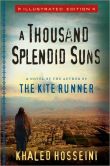 We'll meet at Steph's house on November 25 to discuss A Thousand Splendid Suns.
We'll meet at Steph's house on November 25 to discuss A Thousand Splendid Suns.Supplemental materials:
- Hosseini's site, with link to discussion questions
- NYTimes book review
- LitLovers entry, with discussion questions
November 10, 2013
Our slate for 2013-2014 (and a list of everything pitched)
Here's our lineup and calendar for 2013-2014!
November 25 (at Steph's): A Thousand Splendid Suns, Khaled Hosseini
January 6: Flight Behavior, Barbara Kingsolver
January 27: Beautiful Ruins, Jess Walter
February 24: The Brain That Changes Itself, Norman Doidge
March 24: Let the Great World Spin, Colum McCann
April 28: Angle of Repose, Wallace Stegner (Gayle: we picked it in your honor! Hope you can join us for this one!)
May19: How It All Began, Penelope Lively
June 23: Lowland, Jhumpa Lahiri
July 28: Swamplandia, Karen Russell
August 25: The Ocean at the End of the Lane, Neil Gaiman
September 22: Frankenstein, Mary Shelley
October 27: Book picking night!
Here are all the pitches with votes (first ballot/second ballot)
Scarlet Letter, Nathaniel Hawthorne 10/11 - Julie
This is How You Lose Her, Junot Diaz 14/24 - Kathy
The Brief Wondrous Life of Oscar Wao, Junot Diaz - 5/0 - Karen
Life After Life, Kate Atkinson - 0/0 - Ruth
Lowland, Jhumpa Lahiri 38 - Kerry
Let the Great World Spin, Colum McCann 18/45 - Katherine
Flight Behavior, Barbara Kingsolver 19/30 - Susan
How It All Began, Penelope Lively 30 - Suzanne
Angle of Repose, Wallace Stegner - 35 - Connie - in Gayle's honor
Beautiful Ruins, Jess Walter - 46 - Julie
The Brain That Changes Itself, Norman Doidge - 39 - Steph
The Daylight Gate, Janett Winterson - 15/0 - Kathy
Ocean at the End of the Lane, Neil Gaiman - 15/31 - Karen
Gone Girl, Gillian Flynn - 10/0 - Ruth
Round House, Louise Erdrich - 10/4 - Kerry
A Thousand Splendid Suns, Khaled Hosseini - 42 - Katherine
Ru, Kim Thuy - 19/23 - Suzanne
Architecture of Happiness, Alain de Botton - 0/7 - Suzanne
Swamplandia, Karen Russell - 31 - Steph
The Girls of Slender Means. Muriel Sparks - 10/25 - Steph
November 25 (at Steph's): A Thousand Splendid Suns, Khaled Hosseini
January 6: Flight Behavior, Barbara Kingsolver
January 27: Beautiful Ruins, Jess Walter
February 24: The Brain That Changes Itself, Norman Doidge
March 24: Let the Great World Spin, Colum McCann
April 28: Angle of Repose, Wallace Stegner (Gayle: we picked it in your honor! Hope you can join us for this one!)
May19: How It All Began, Penelope Lively
June 23: Lowland, Jhumpa Lahiri
July 28: Swamplandia, Karen Russell
August 25: The Ocean at the End of the Lane, Neil Gaiman
September 22: Frankenstein, Mary Shelley
October 27: Book picking night!
Here are all the pitches with votes (first ballot/second ballot)
Scarlet Letter, Nathaniel Hawthorne 10/11 - Julie
This is How You Lose Her, Junot Diaz 14/24 - Kathy
The Brief Wondrous Life of Oscar Wao, Junot Diaz - 5/0 - Karen
Life After Life, Kate Atkinson - 0/0 - Ruth
Lowland, Jhumpa Lahiri 38 - Kerry
Let the Great World Spin, Colum McCann 18/45 - Katherine
Flight Behavior, Barbara Kingsolver 19/30 - Susan
How It All Began, Penelope Lively 30 - Suzanne
Angle of Repose, Wallace Stegner - 35 - Connie - in Gayle's honor
Beautiful Ruins, Jess Walter - 46 - Julie
The Brain That Changes Itself, Norman Doidge - 39 - Steph
The Daylight Gate, Janett Winterson - 15/0 - Kathy
Ocean at the End of the Lane, Neil Gaiman - 15/31 - Karen
Gone Girl, Gillian Flynn - 10/0 - Ruth
Round House, Louise Erdrich - 10/4 - Kerry
A Thousand Splendid Suns, Khaled Hosseini - 42 - Katherine
Ru, Kim Thuy - 19/23 - Suzanne
Architecture of Happiness, Alain de Botton - 0/7 - Suzanne
Swamplandia, Karen Russell - 31 - Steph
The Girls of Slender Means. Muriel Sparks - 10/25 - Steph
October 5, 2013
Long Lists
Katherine L.
Let the Great World Spin, Colum McCann
Let the Great World Spin is the critically acclaimed author’s most ambitious novel yet: a dazzlingly rich vision of the pain, loveliness, mystery, and promise of New York City in the 1970s.
A sweeping and radical social novel, Let the Great World Spin captures the spirit of America in a time of transition, extraordinary promise, and, in hindsight, heartbreaking innocence. Hailed as a “fiercely original talent” (San Francisco Chronicle), award-winning novelist McCann has delivered a triumphantly American masterpiece that awakens in us a sense of what the novel can achieve, confront, and even heal.
A Thousand Splendid Suns, Khaled Hosseini
Like its predecessor The Kite Runner, A Thousand Splendid Suns uses that tumultuous backdrop of war-torn Afghanistan to render the heroic plight of two people; in this case, women of different generations married to the same savagely abusive male. Born out of wedlock, Mariam was forced to marry forty-year-old Rasheed when she was only fifteen. Then eighteen years later, her still childless husband angrily takes an even younger wife. Hosseini renders the story of Mariam and her "sister/daughter" Laila with persuasive detail and consummate humanity. Their abject situation leaves them no emotional space for idle philosophizing; their resistance is from the very core of their being. Another Discover selection that made good.)
Katherine U.
The Brief Wondrous Life of Oscar Wao, Junot Diaz
Oscar is a sweet but disastrously overweight ghetto nerd who—from the New Jersey home he shares with his old world mother and rebellious sister—dreams of becoming the Dominican J.R.R. Tolkien and, most of all, finding love. But Oscar may never get what he wants. Blame the fukú—a curse that has haunted Oscar’s family for generations, following them on their epic journey from Santo Domingo to the USA. Encapsulating Dominican-American history, The Brief Wondrous Life of Oscar Wao opens our eyes to an astonishing vision of the contemporary American experience and explores the endless human capacity to persevere—and risk it all—in the name of love.
The Ocean at the End of the Lane, Neil Gaiman
An Amazon Best Book of the Month, June 2013: Neil Gaiman's intent was simple: to write a short story. What he ended up with instead was The Ocean at the of the Lane--his first adult novel since Anansi Boys came out in 2005, and a narrative so thoughtful and thrilling that it's as difficult to stop reading as it was for Gaiman to stop writing. Forty years ago, our narrator, who was then a seven-year-old boy, unwittingly discovered a neighboring family’s supernatural secret. What happens next is an imaginative romp through otherwordly adventure that could only come from Gaiman's magical mind. Childhood innocence is tested and transcended as we see what getting between ancient, mystic forces can cost, as well as what can be gained from the power of true friendship. The result is a captivating tale that is equal parts sweet, sad, and spooky.
Kerry
The Lowland, Jhumpa Lahiri
Born just fifteen months apart, Subhash and Udayan Mitra are inseparable brothers, one often mistaken for the other in the Calcutta neighborhood where they grow up. But they are also opposites, with gravely different futures ahead. It is the 1960s, and Udayan—charismatic and impulsive—finds himself drawn to the Naxalite movement, a rebellion waged to eradicate inequity and poverty; he will give everything, risk all, for what he believes. Subhash, the dutiful son, does not share his brother’s political passion; he leaves home to pursue a life of scientific research in a quiet, coastal corner of America.
But when Subhash learns what happened to his brother in the lowland outside their family’s home, he goes back to India, hoping to pick up the pieces of a shattered family, and to heal the wounds Udayan left behind—including those seared in the heart of his brother’s wife.
Masterly suspenseful, sweeping, piercingly intimate, The Lowland is a work of great beauty and complex emotion; an engrossing family saga and a story steeped in history that spans generations and geographies with seamless authenticity. It is Jhumpa Lahiri at the height of her considerable powers.
The Round House, Louise Erdrich
While his father, a tribal judge, endeavors to wrest justice from a situation that defies his efforts, Joe becomes frustrated with the official investigation and sets out with his trusted friends, Cappy, Zack, and Angus, to get some answers of his own. Their quest takes them first to the Round House, a sacred space and place of worship for the Ojibwe. And this is only the beginning.
Steph
Swamplandia, Karen Russell
Frankenstein, Mary Shelley
At once a Gothic thriller, a passionate romance, and a cautionary tale about the dangers of science, Frankenstein tells the story of committed science student Victor Frankenstein. Obsessed with discovering "the cause of generation and life" and "bestowing animation upon lifeless matter," Frankenstein assembles a human being from stolen body parts but; upon bringing it to life, he recoils in horror at the creature?s hideousness. Tormented by isolation and loneliness, the once-innocent creature turns to evil and unleashes a campaign of murderous revenge against his creator, Frankenstein.
Frankenstein, an instant bestseller and an important ancestor of both the horror and science fiction genres, not only tells a terrifying story, but also raises rofound, disturbing questions about the very nature of life and the place of humankind within the cosmos: What does it mean to be human? What responsibilities do we have to each other? How far can we go in tampering with Nature? In our age, filled with news of organ donation genetic engineering, and bio-terrorism, these questions are more relevant than ever.
The Girls of Slender Means, Muriel Spark
"Long ago in 1945 all the nice people in England were poor, allowing for exceptions," begins The Girls of Slender Means, Dame Muriel Spark's tragic and rapier-witted portrait of a London ladies' hostel just emerging from the shadow of World War II.
Like the May of Teck Club itself—"three times window shattered since 1940 but never directly hit"—its lady inhabitants do their best to act as if the world were back to normal: practicing elocution, and jostling over suitors and a single Schiaparelli gown. The novel's harrowing ending reveals that the girls' giddy literary and amorous peregrinations are hiding some tragically painful war wounds.
Chosen by Anthony Burgess as one of the Best Modern Novels in the Sunday Times of London, The Girls of Slender Means is a taut and eerily perfect novel by an author The New York Times has called "one of this century's finest creators of comic-metaphysical entertainment."
The Brain That Changes Itself, Norman Doidge
An astonishing new science called neuroplasticity is overthrowing the centuries-old notion that the human brain is immutable, and proving that it is, in fact, possible to change your brain. Psychoanalyst, Norman Doidge, M.D., traveled the country to meet both the brilliant scientists championing neuroplasticity, its healing powers, and the people whose lives they’ve transformed—people whose mental limitations, brain damage or brain trauma were seen as unalterable. We see a woman born with half a brain that rewired itself to work as a whole, blind people who learn to see, learning disorders cured, IQs raised, aging brains rejuvenated, stroke patients learning to speak, children with cerebral palsy learning to move with more grace, depression and anxiety disorders successfully treated, and lifelong character traits changed. Using these marvelous stories to probe mysteries of the body, emotion, love, sex, culture, and education, Dr. Doidge has written an immensely moving, inspiring book that will permanently alter the way we look at our brains, human nature, and human potential.
Suzanne
Out of Egypt, Andre Aciman (memoir)
This richly colored memoir chronicles the exploits of a flamboyant Jewish family, from its bold arrival in cosmopolitan Alexandria to its defeated exodus three generations later. In elegant and witty prose, André Aciman introduces us to the marvelous eccentrics who shaped his life—Uncle Vili, the strutting daredevil, soldier, salesman, and spy; the two grandmothers, the Princess and the Saint, who gossip in six languages; Aunt Flora, the German refugee who warns that Jews lose everything "at least twice in their lives." And through it all, we come to know a boy who, even as he longs for a wider world, does not want to be led, forever, out of Egypt.
I Knew You'd Be Lovely, Alethea Black
Alethea Black's deeply moving and wholly original debut features a coterie of memorable characters who have reached emotional crossroads in their lives. Brimming with humor, irony, and insights about the unpredictable nature of life, the unbearable beauty of fate, and the power that one moment, or one decision, can have to transform us, I Knew You'd Be Lovely delivers that rare thing—stories with both an edge and a heart.
Architecture of Happiness, Alain de Botton
The Achitecture of Happiness is a dazzling and generously illustrated journey through the philosophy and psychology of architecture and the indelible connection between our identities and our locations.One of the great but often unmentioned causes of both happiness and misery is the quality of our environment: the kinds of walls, chairs, buildings, and streets that surround us. And yet a concern for architecture is too often described as frivolous, even self-indulgent. Alain de Botton starts from the idea that where we are heavily influences who we can be, and argues that it is architecture's task to stand as an eloquent reminder of our full potential.
Animal, Vegetable, Miracle, Barbara Kingsolver
Author Barbara Kingsolver and her family abandoned the industrial-food pipeline to live a rural life—vowing that, for one year, they’d only buy food raised in their own neighborhood, grow it themselves, or learn to live without it. Part memoir, part journalistic investigation, Animal, Vegetable, Miracle is an enthralling narrative that will open your eyes in a hundred new ways to an old truth: You are what you eat.
How It All Began, Penelope Lively
Through a richly conceived and colorful cast of characters, Penelope Lively explores the powerful role of chance in people's lives and deftly illustrates how our paths can be altered irrevocably by someone we will never even meet. Brought to life in her hallmark graceful prose and full of keen insights into human nature, How It All Began is an engaging, contemporary tale that is sure to strike a chord with her legion of loyal fans as well as new readers. A writer of rare wisdom, elegance, and humor, Lively is a consummate storyteller whose gifts are on full display in this masterful work.
Ru, Kim Thuy
At ten years old, Kim Thúy fled Vietnam on a boat with her family, leaving behind a grand house and the many less tangible riches of their home country: the ponds of lotus blossoms, the songs of soup-vendors. The family arrived in Quebec, where they found clothes at the flea market, and mattresses with actual fleas. Kim learned French and English, and as she grew older, seized what opportunities an immigrant could; she put herself through school picking vegetables and sewing clothes, worked as a lawyer and interpreter, and later as a restaurateur. She was married and a mother when the urge to write struck her, and she found herself scribbling words at every opportunity - pulling out her notebook at stoplights and missing the change to green. The story emerging was one of a Vietnamese émigré on a boat to an unknown future: her own story fictionalized and crafted into a stunning novel.
The novel's title, Ru, has meaning in both Kim's native and adoptive languages: in Vietnamese, ru is a lullaby; in French, a stream. And it provides the perfect name for this slim yet potent novel. With prose that soothes and sings, Ru weaves through time, flows and transports: a river of sensuous memories gathering power. It's a classic immigrant story told in a breathtaking new way.
Let the Great World Spin, Colum McCann
- Winner of the 2009 National Book Award for Fiction
- Winner of the 2011 International IMPAC Dublin Literary Award
Let the Great World Spin is the critically acclaimed author’s most ambitious novel yet: a dazzlingly rich vision of the pain, loveliness, mystery, and promise of New York City in the 1970s.
A sweeping and radical social novel, Let the Great World Spin captures the spirit of America in a time of transition, extraordinary promise, and, in hindsight, heartbreaking innocence. Hailed as a “fiercely original talent” (San Francisco Chronicle), award-winning novelist McCann has delivered a triumphantly American masterpiece that awakens in us a sense of what the novel can achieve, confront, and even heal.
A Thousand Splendid Suns, Khaled Hosseini
Like its predecessor The Kite Runner, A Thousand Splendid Suns uses that tumultuous backdrop of war-torn Afghanistan to render the heroic plight of two people; in this case, women of different generations married to the same savagely abusive male. Born out of wedlock, Mariam was forced to marry forty-year-old Rasheed when she was only fifteen. Then eighteen years later, her still childless husband angrily takes an even younger wife. Hosseini renders the story of Mariam and her "sister/daughter" Laila with persuasive detail and consummate humanity. Their abject situation leaves them no emotional space for idle philosophizing; their resistance is from the very core of their being. Another Discover selection that made good.)
Katherine U.
The Brief Wondrous Life of Oscar Wao, Junot Diaz
Oscar is a sweet but disastrously overweight ghetto nerd who—from the New Jersey home he shares with his old world mother and rebellious sister—dreams of becoming the Dominican J.R.R. Tolkien and, most of all, finding love. But Oscar may never get what he wants. Blame the fukú—a curse that has haunted Oscar’s family for generations, following them on their epic journey from Santo Domingo to the USA. Encapsulating Dominican-American history, The Brief Wondrous Life of Oscar Wao opens our eyes to an astonishing vision of the contemporary American experience and explores the endless human capacity to persevere—and risk it all—in the name of love.
The Ocean at the End of the Lane, Neil Gaiman
An Amazon Best Book of the Month, June 2013: Neil Gaiman's intent was simple: to write a short story. What he ended up with instead was The Ocean at the of the Lane--his first adult novel since Anansi Boys came out in 2005, and a narrative so thoughtful and thrilling that it's as difficult to stop reading as it was for Gaiman to stop writing. Forty years ago, our narrator, who was then a seven-year-old boy, unwittingly discovered a neighboring family’s supernatural secret. What happens next is an imaginative romp through otherwordly adventure that could only come from Gaiman's magical mind. Childhood innocence is tested and transcended as we see what getting between ancient, mystic forces can cost, as well as what can be gained from the power of true friendship. The result is a captivating tale that is equal parts sweet, sad, and spooky.
Kerry
The Lowland, Jhumpa Lahiri
- Shortlisted for the 2013 Man Booker Prize
Born just fifteen months apart, Subhash and Udayan Mitra are inseparable brothers, one often mistaken for the other in the Calcutta neighborhood where they grow up. But they are also opposites, with gravely different futures ahead. It is the 1960s, and Udayan—charismatic and impulsive—finds himself drawn to the Naxalite movement, a rebellion waged to eradicate inequity and poverty; he will give everything, risk all, for what he believes. Subhash, the dutiful son, does not share his brother’s political passion; he leaves home to pursue a life of scientific research in a quiet, coastal corner of America.
But when Subhash learns what happened to his brother in the lowland outside their family’s home, he goes back to India, hoping to pick up the pieces of a shattered family, and to heal the wounds Udayan left behind—including those seared in the heart of his brother’s wife.
Masterly suspenseful, sweeping, piercingly intimate, The Lowland is a work of great beauty and complex emotion; an engrossing family saga and a story steeped in history that spans generations and geographies with seamless authenticity. It is Jhumpa Lahiri at the height of her considerable powers.
The Round House, Louise Erdrich
- National Book Award winner
- Washington Post Best Book of the Year
- New York Times Notable Book
While his father, a tribal judge, endeavors to wrest justice from a situation that defies his efforts, Joe becomes frustrated with the official investigation and sets out with his trusted friends, Cappy, Zack, and Angus, to get some answers of his own. Their quest takes them first to the Round House, a sacred space and place of worship for the Ojibwe. And this is only the beginning.
Steph
Swamplandia, Karen Russell
- New York Times Best Book of the Year
- One of Granta's Best Young American Novelists
- Selected for the New Yorker's 20 Under 40
- Nominated for the Orange Prize
Frankenstein, Mary Shelley
At once a Gothic thriller, a passionate romance, and a cautionary tale about the dangers of science, Frankenstein tells the story of committed science student Victor Frankenstein. Obsessed with discovering "the cause of generation and life" and "bestowing animation upon lifeless matter," Frankenstein assembles a human being from stolen body parts but; upon bringing it to life, he recoils in horror at the creature?s hideousness. Tormented by isolation and loneliness, the once-innocent creature turns to evil and unleashes a campaign of murderous revenge against his creator, Frankenstein.
Frankenstein, an instant bestseller and an important ancestor of both the horror and science fiction genres, not only tells a terrifying story, but also raises rofound, disturbing questions about the very nature of life and the place of humankind within the cosmos: What does it mean to be human? What responsibilities do we have to each other? How far can we go in tampering with Nature? In our age, filled with news of organ donation genetic engineering, and bio-terrorism, these questions are more relevant than ever.
The Girls of Slender Means, Muriel Spark
"Long ago in 1945 all the nice people in England were poor, allowing for exceptions," begins The Girls of Slender Means, Dame Muriel Spark's tragic and rapier-witted portrait of a London ladies' hostel just emerging from the shadow of World War II.
Like the May of Teck Club itself—"three times window shattered since 1940 but never directly hit"—its lady inhabitants do their best to act as if the world were back to normal: practicing elocution, and jostling over suitors and a single Schiaparelli gown. The novel's harrowing ending reveals that the girls' giddy literary and amorous peregrinations are hiding some tragically painful war wounds.
Chosen by Anthony Burgess as one of the Best Modern Novels in the Sunday Times of London, The Girls of Slender Means is a taut and eerily perfect novel by an author The New York Times has called "one of this century's finest creators of comic-metaphysical entertainment."
The Brain That Changes Itself, Norman Doidge
An astonishing new science called neuroplasticity is overthrowing the centuries-old notion that the human brain is immutable, and proving that it is, in fact, possible to change your brain. Psychoanalyst, Norman Doidge, M.D., traveled the country to meet both the brilliant scientists championing neuroplasticity, its healing powers, and the people whose lives they’ve transformed—people whose mental limitations, brain damage or brain trauma were seen as unalterable. We see a woman born with half a brain that rewired itself to work as a whole, blind people who learn to see, learning disorders cured, IQs raised, aging brains rejuvenated, stroke patients learning to speak, children with cerebral palsy learning to move with more grace, depression and anxiety disorders successfully treated, and lifelong character traits changed. Using these marvelous stories to probe mysteries of the body, emotion, love, sex, culture, and education, Dr. Doidge has written an immensely moving, inspiring book that will permanently alter the way we look at our brains, human nature, and human potential.
Suzanne
Out of Egypt, Andre Aciman (memoir)
This richly colored memoir chronicles the exploits of a flamboyant Jewish family, from its bold arrival in cosmopolitan Alexandria to its defeated exodus three generations later. In elegant and witty prose, André Aciman introduces us to the marvelous eccentrics who shaped his life—Uncle Vili, the strutting daredevil, soldier, salesman, and spy; the two grandmothers, the Princess and the Saint, who gossip in six languages; Aunt Flora, the German refugee who warns that Jews lose everything "at least twice in their lives." And through it all, we come to know a boy who, even as he longs for a wider world, does not want to be led, forever, out of Egypt.
I Knew You'd Be Lovely, Alethea Black
Alethea Black's deeply moving and wholly original debut features a coterie of memorable characters who have reached emotional crossroads in their lives. Brimming with humor, irony, and insights about the unpredictable nature of life, the unbearable beauty of fate, and the power that one moment, or one decision, can have to transform us, I Knew You'd Be Lovely delivers that rare thing—stories with both an edge and a heart.
Architecture of Happiness, Alain de Botton
The Achitecture of Happiness is a dazzling and generously illustrated journey through the philosophy and psychology of architecture and the indelible connection between our identities and our locations.One of the great but often unmentioned causes of both happiness and misery is the quality of our environment: the kinds of walls, chairs, buildings, and streets that surround us. And yet a concern for architecture is too often described as frivolous, even self-indulgent. Alain de Botton starts from the idea that where we are heavily influences who we can be, and argues that it is architecture's task to stand as an eloquent reminder of our full potential.
Animal, Vegetable, Miracle, Barbara Kingsolver
Author Barbara Kingsolver and her family abandoned the industrial-food pipeline to live a rural life—vowing that, for one year, they’d only buy food raised in their own neighborhood, grow it themselves, or learn to live without it. Part memoir, part journalistic investigation, Animal, Vegetable, Miracle is an enthralling narrative that will open your eyes in a hundred new ways to an old truth: You are what you eat.
How It All Began, Penelope Lively
Through a richly conceived and colorful cast of characters, Penelope Lively explores the powerful role of chance in people's lives and deftly illustrates how our paths can be altered irrevocably by someone we will never even meet. Brought to life in her hallmark graceful prose and full of keen insights into human nature, How It All Began is an engaging, contemporary tale that is sure to strike a chord with her legion of loyal fans as well as new readers. A writer of rare wisdom, elegance, and humor, Lively is a consummate storyteller whose gifts are on full display in this masterful work.
Ru, Kim Thuy
At ten years old, Kim Thúy fled Vietnam on a boat with her family, leaving behind a grand house and the many less tangible riches of their home country: the ponds of lotus blossoms, the songs of soup-vendors. The family arrived in Quebec, where they found clothes at the flea market, and mattresses with actual fleas. Kim learned French and English, and as she grew older, seized what opportunities an immigrant could; she put herself through school picking vegetables and sewing clothes, worked as a lawyer and interpreter, and later as a restaurateur. She was married and a mother when the urge to write struck her, and she found herself scribbling words at every opportunity - pulling out her notebook at stoplights and missing the change to green. The story emerging was one of a Vietnamese émigré on a boat to an unknown future: her own story fictionalized and crafted into a stunning novel.
The novel's title, Ru, has meaning in both Kim's native and adoptive languages: in Vietnamese, ru is a lullaby; in French, a stream. And it provides the perfect name for this slim yet potent novel. With prose that soothes and sings, Ru weaves through time, flows and transports: a river of sensuous memories gathering power. It's a classic immigrant story told in a breathtaking new way.
Subscribe to:
Posts (Atom)

































